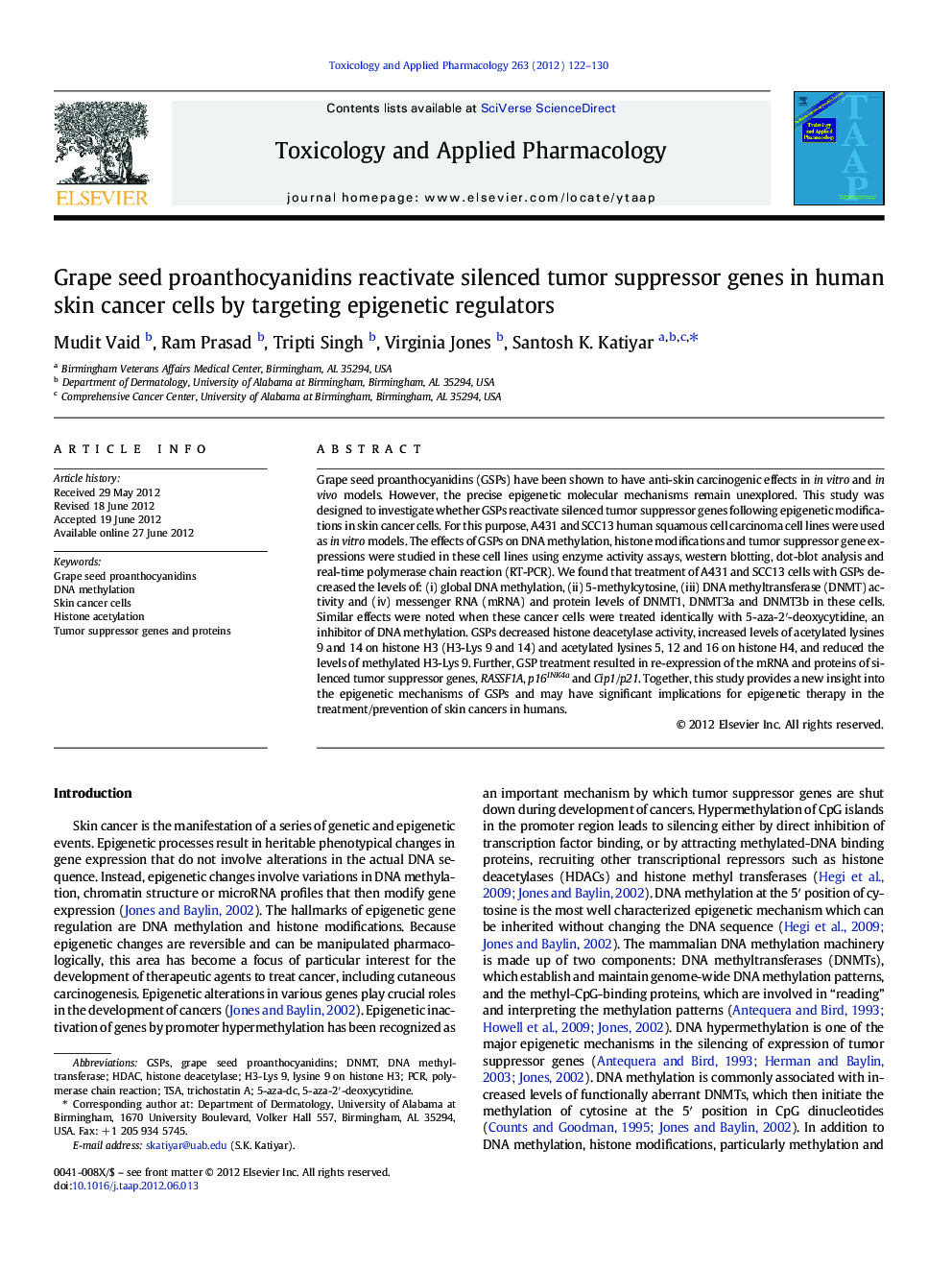| Article ID | Journal | Published Year | Pages | File Type |
|---|---|---|---|---|
| 2569275 | Toxicology and Applied Pharmacology | 2012 | 9 Pages |
Grape seed proanthocyanidins (GSPs) have been shown to have anti-skin carcinogenic effects in in vitro and in vivo models. However, the precise epigenetic molecular mechanisms remain unexplored. This study was designed to investigate whether GSPs reactivate silenced tumor suppressor genes following epigenetic modifications in skin cancer cells. For this purpose, A431 and SCC13 human squamous cell carcinoma cell lines were used as in vitro models. The effects of GSPs on DNA methylation, histone modifications and tumor suppressor gene expressions were studied in these cell lines using enzyme activity assays, western blotting, dot-blot analysis and real-time polymerase chain reaction (RT-PCR). We found that treatment of A431 and SCC13 cells with GSPs decreased the levels of: (i) global DNA methylation, (ii) 5-methylcytosine, (iii) DNA methyltransferase (DNMT) activity and (iv) messenger RNA (mRNA) and protein levels of DNMT1, DNMT3a and DNMT3b in these cells. Similar effects were noted when these cancer cells were treated identically with 5-aza-2′-deoxycytidine, an inhibitor of DNA methylation. GSPs decreased histone deacetylase activity, increased levels of acetylated lysines 9 and 14 on histone H3 (H3-Lys 9 and 14) and acetylated lysines 5, 12 and 16 on histone H4, and reduced the levels of methylated H3-Lys 9. Further, GSP treatment resulted in re-expression of the mRNA and proteins of silenced tumor suppressor genes, RASSF1A, p16INK4a and Cip1/p21. Together, this study provides a new insight into the epigenetic mechanisms of GSPs and may have significant implications for epigenetic therapy in the treatment/prevention of skin cancers in humans.
►Epigenetic modulations have been shown to have a role in cancer risk. ►Proanthocyanidins decrease the levels of DNA methylation and histone deacetylation. ►Proanthocyanidins inhibit histone deacetylase activity in skin cancer cells. ►Proanthocyanidins reactivate tumor suppressor genes in skin cancer cells. ►Grape seed proanthocyanidins can prevent skin cancer through epigenetic modulation.
